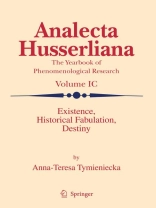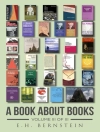Surging from the ontopoietic vital timing of life, human self-consciousness prompts the innermost desire to rise above its brute facts. Imaginatio creatrix inspires us to fabulate these facts into events and plots with personal significance attempting to delineate a life-course in life-stories within the ever-flowing stream – existence.
Seeking their deep motivations, causes and concatenations, we fabulate relatively stabilized networks of interconnecting meaning – history. But to understand the meaning and sense of these networks’ reconfigurations call for the purpose and telos of our endless undertaking; they remain always incomplete, carried onwards with the current of life, while fluctuating with personal experience in the play of memory.
Facts and life stories, subjective desires and propensities, the circumambient world in its historical moves, creative logos and mythos, personal freedom and inward stirrings thrown in an enigmatic interplay, prompt our imperative thirst for the meaning of this course, its purpose and its fulfillment – the sense of it all. To disentangle all this animates the passions of the literary genius.
The focus of this collection is to isolate the main arteries running through the intermingled forces prompting our quest to endow life with meaning.
Papers by: Jadwiga Smith, Lawrence Kimmel, Alira Ashvo-Munoz, William D. Melaney, Imafedia Okhamafe, Michel Dion, Franck Dalmas, Ludmila Molodkina, Victor Gerald Rivas, Rebecca M. Painter, Matti Itkonen, Raymond J. Wilson III, Christopher S. Schreiner, Bruce Ross, Bernadette Prochaska, Tsung-I Dow, Jerre Collins, Cezary Jozef Olbromski, Victor Kocay, Roberto Verolini.
Daftar Isi
Existence, Logos, and Imagination.- Contextualizing Anna-Teresa Tymieniecka’s Concept of Fabulation.- The Mythic Journey of a Changeling.- Aura; Ontological Materiality of Existence and Fabulation.- Sartre’s Phenomenology of History: Community, Agency and Comprehension.- Historical Fabulation as History by Other Means: Shakespeare’s Caesar and Mofolo’s Chaka as Opposites in Rubiconesque Leadership.- The Dialectics Between Self, Time and Historical Change According to Milan Kundera.- Lived Images/Imagined Existences: A Phenomenology of Image Creation in the Works of Michel Tournier and Photography.- Aesthetic And Historical Framework of Russian Manor as a Genre.- The Portrait of A Real Live Man: Individuality, Moral Determination and Historical Myth in the Light of Henry James’s The American.- Healing Personal History: Memoirs of Trauma and Transcendence.- Once I Was: A Philosophical Excursion into the Metaphors of the Mind.- Existence and Historical Fabulation: The Example of Tom Stoppard’s Travesties.- Metaphysical Fabulation in the Berkshires: Melville’s ‘Arrowhead’ and the Anachrony of Thought.- Being is Believing: The Underpinnings of Walter Benjamin’s Deconstruction of Historicism.- Historic Fabulation and T. S . Eliot’s “Little Lidding”.- Harmonious Balance as the Ultimate Reality in Artistic and Philosophical Interpretation of the Taiji Diagram.- Time After Time: The Temporality of Human Existence in Faulkner’s The Sound and the Fury.- Toward Destiny.- Destiny in the Literature of Walker Percy, Leo Tolstoy and Eudora Welty.- The Interior Quest: Memoir, Lens of Personal Destiny.- Collective Intentions and the Phenomenology of Time – The Theory of Non-Domination in Communication.- Interpretation Of Destiny.- Human Destiny at the Edgeof Existential Categories of Life: Musil and Kundera in Dialogue.- Aspiring Beyond:French Romanticism, Nietzsche And Saint-John Perse.- Words Turn into Stone Haruki Murakami’s After The Quake.- On the Modern Opposition of Fate, Destiny, Life, Doom and Luck in the Light of Henry James’s The Portrait of a Lady.- Gail Godwin: Negotiating With Destiny in The Odd Woman and “Dream Children”.- The Soul and its Destiny: Readings and Dialogues on Science, Philosophy and Religion – A Meeting with Vito Mancuso and Orlando Franceschelli.












